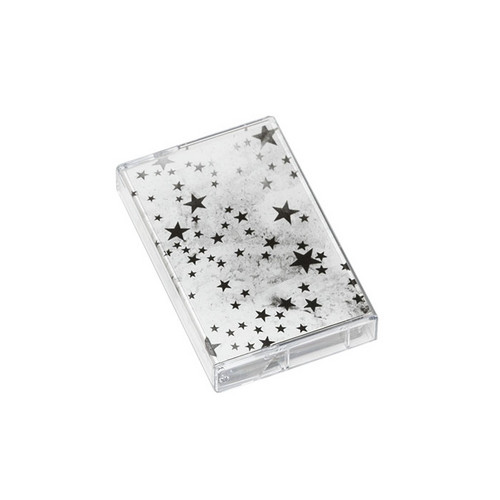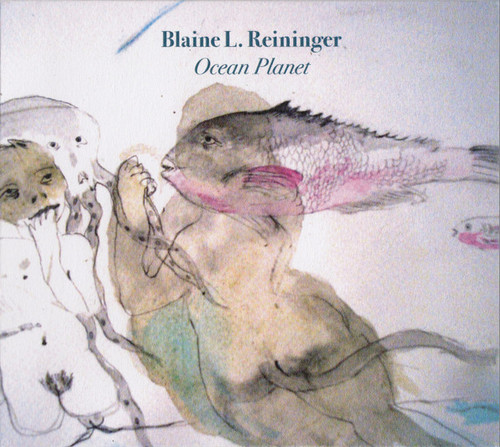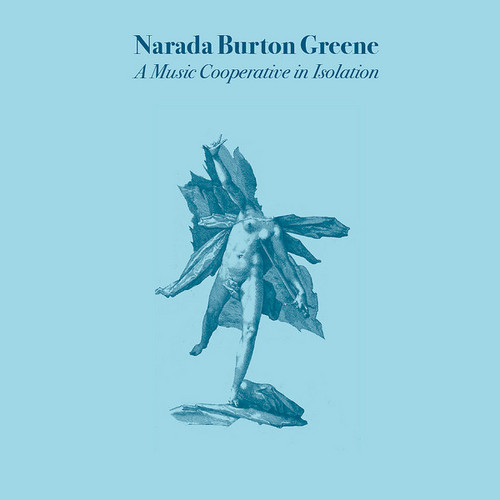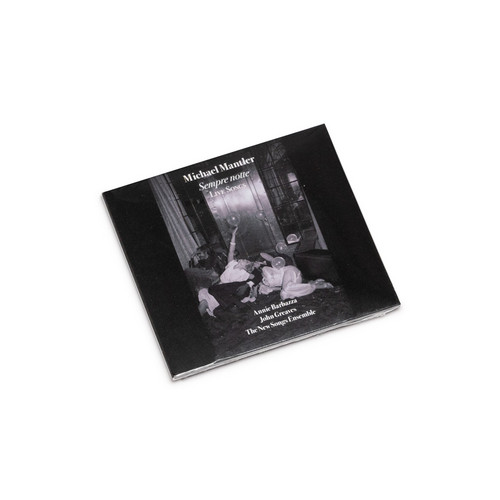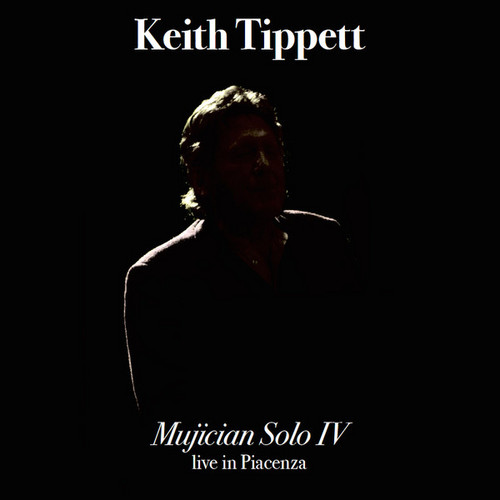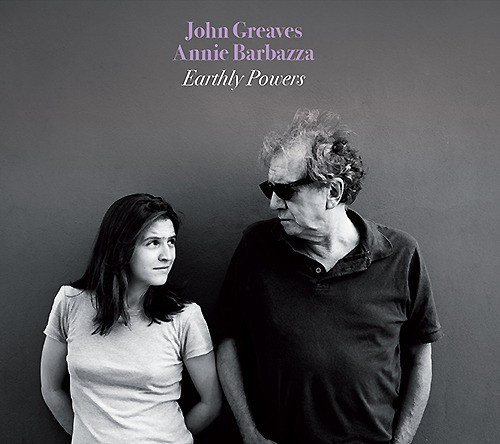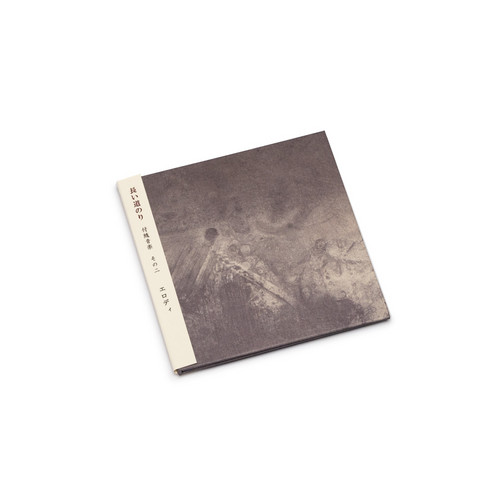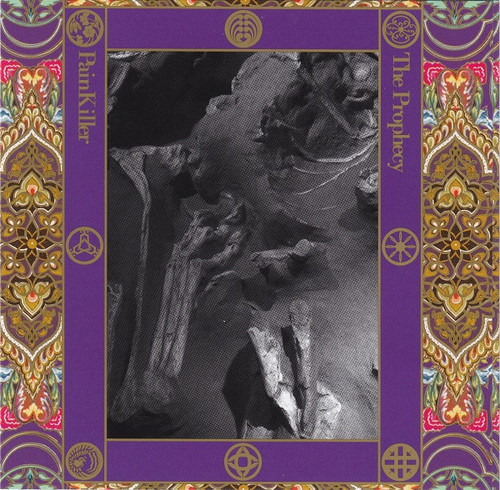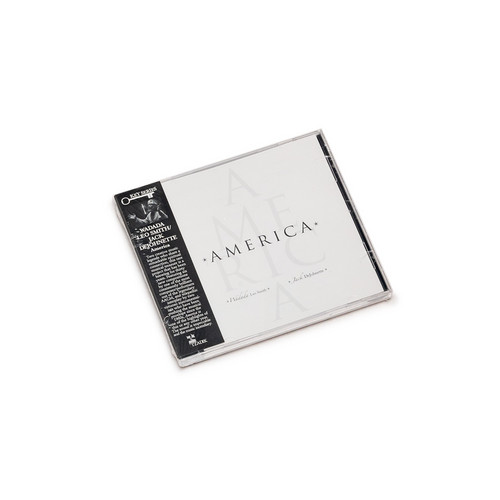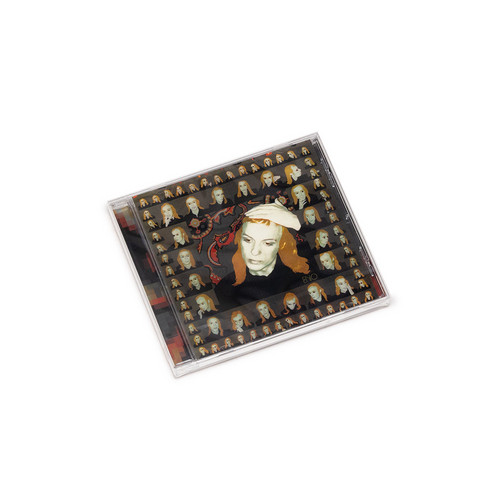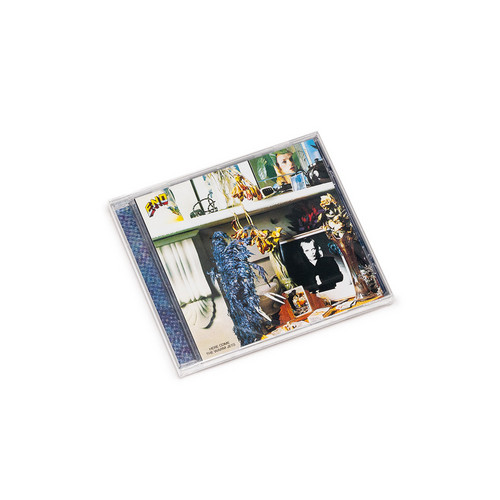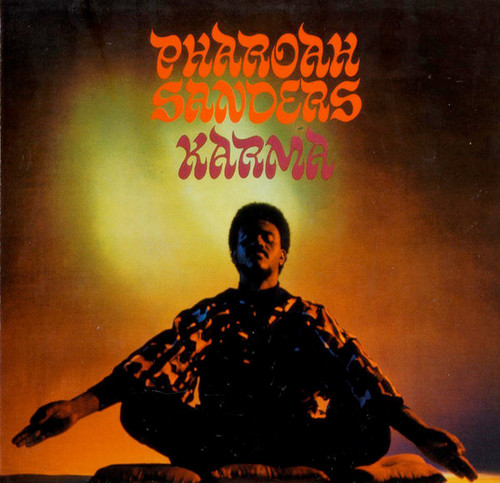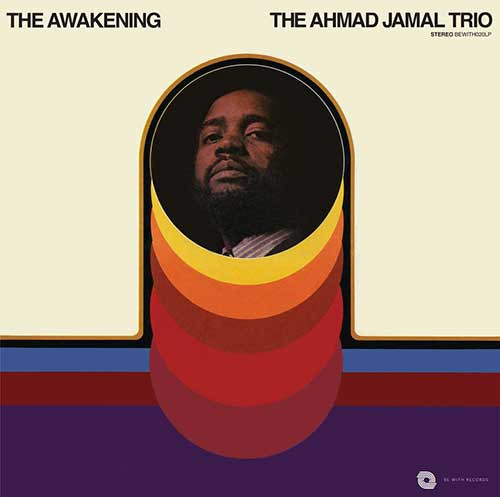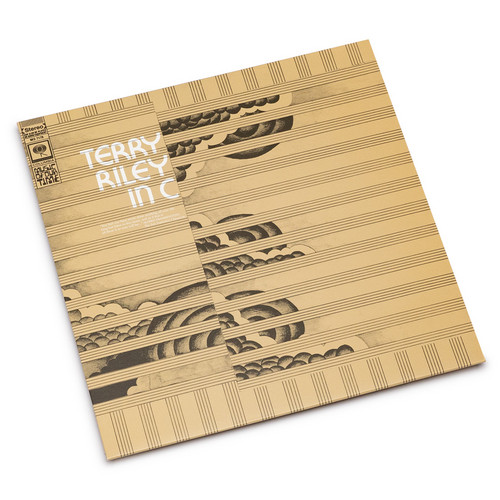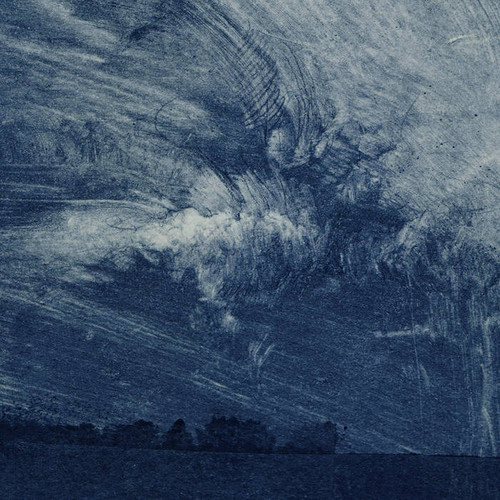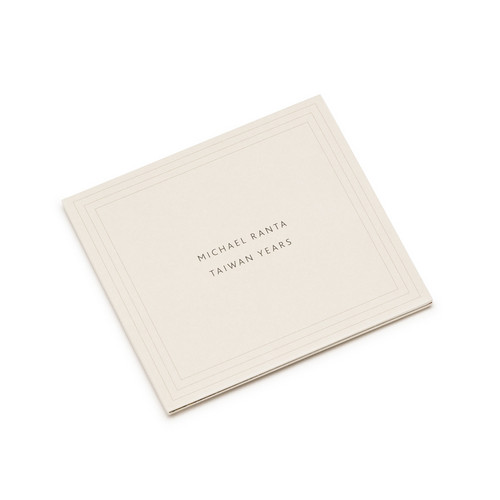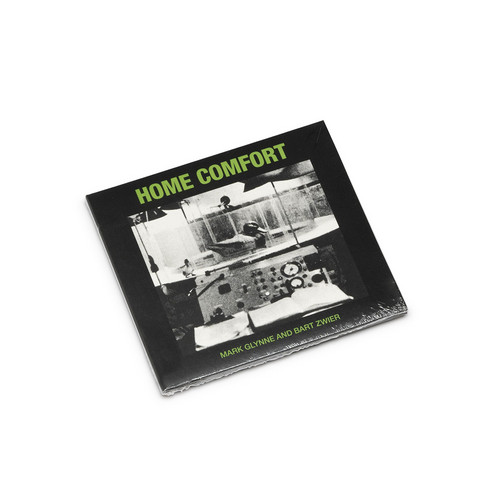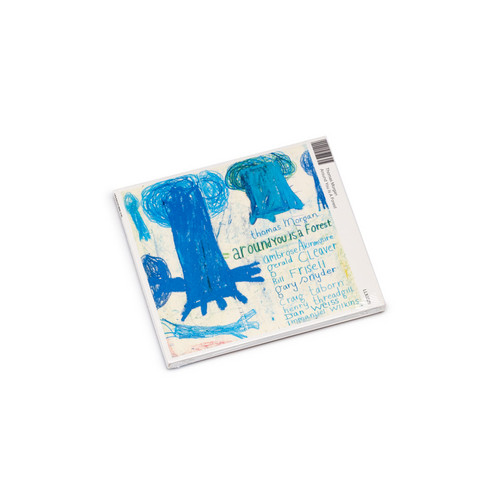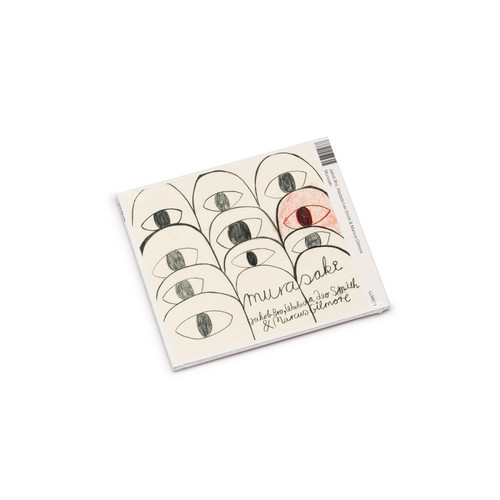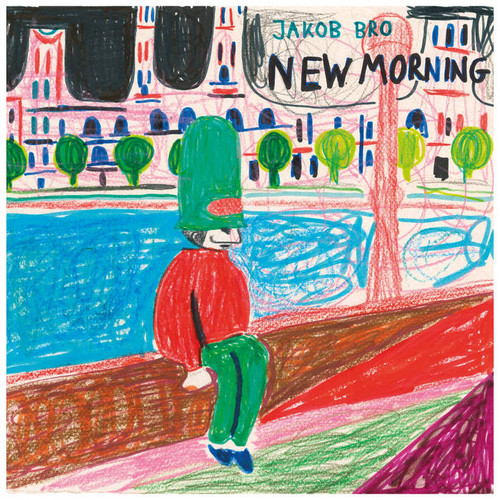Back in stock
Un sisma mentre ci voltiamo di spalle
Union Editions presents Un sisma mentre ci voltiamo di spalle by Devi Tensione. Composed by Francesco Castrovilli. Additional production/arrangement by Lapo Sorride aka Kinked. Recorded between France, Turin, Bari. Mastered by Luciano Lamanna at Subsound Studio, Roma.
Ocean Planet
We're incredibly proud to announce the new album by Blaine L. Reininger of Tuxedomoon, now a Dark Companion artist. Ocean Planet is an ambient-avant-garde work written, recorded, and mixed by Blaine himself in Athens, Greece, and features 12 deeply intense, atmospheric, and introspective tracks. The beautiful cover art is based on a painting by Blaine's wife, Maria Panourgia. Some of the songs had been sitting in Blaine's drawer for a while when producer Max Marchini discovered that some of them…
A Music Cooperative In Isolation
*250 coipes limited edition.* 'In this trying time of Covid and the serious curtail of gigs and record production opportunities, I’m glad to be in contact with Dark Companion Records and Max Marchini. Max seems to be the rare guy who puts the quality of contemporary music he produces much more to the fore than the financial considerations.. the investment in which is always tricky, and can hardly ever promise much in financial return. On to the music herein: Just before the Covid came on last ye…
Sempre Notte - Live Songs
"We are very proud of adding to our artists log such a great musician, immense composer, poet: Michael Mantler. I always admired his work since I was a kid and I think all of his records are in my collection. In a way it was quite natural for two other great artists to be involved in this brilliant project: long time Mantler collaborator John Greaves and the amazing Annie Barbazza. I hope you enjoy this live recording as much as I do and appreciate the care we all put in making this stunning alb…
Mujician Solo IV (Live In Piacenza)
CD Edition. From its opening notes, it is apparent that Keith Tippett's first solo recording in fifteen years is something very special indeed. Tippett has always been a player with a talent for musical pyrotechnics, cascades of notes—triplets, trills, mordants and arpeggios-colliding with mighty tone clusters. But equally, he has also been an artist of great emotional subtlety and depth. Both these qualities are in evidence here. For much of the record, the sense is less that of Rachmaninov, mo…
Earthly Powers
"This album is composed entirely of live recordings: no overdubs, no gimmicks. Annie Barbazza and John Greaves tour throughout Italy and Europe with a constantly evolving tracklist, usually decided at the last minute before going on stage. This album collects some of the songs, mostly written by John, that form the core of their shows. Sometimes they perform parts of Annie's repertoire, such as "Moonchild" or "Epitaph" by Greg Lake while performing at the Rock In Opposition Festival in Lyon in M…
Odyssee
Elodie here featuring core members Timo van Luijk and Andrew Chalk, playing live in Germany in 2015. Performing a pure duet of flute and string synthesizer over one episodic track 'Odyssee', a poetic and melancholy synchronous soundtrack to a film made and shown by van Luijk on the same evening.
'Odyssee' was mastered for CD release by Denis Blackham and is packaged in handmade gatefold mini LP style sleeve with Japanese language obi.
The Prophecy
John Zorn and Bill Laswell are two of the Downtown scene’s most consistently intrepid musical explorers, and PainKiller, formed in 1991 is their longest running project together. “The Prophecy,” the first official PainKiller release in over ten years, was recorded live in Europe in 2004–5 and pulls together music from several concerts into a powerful and mind blowing suite unlike anything the group has ever released before. Featuring master drummer Yoshida Tatsuya (Ruins, Korekyojin) the music t…
America
Two creative music legends who share a remarkable spiritual connection in their first duo outing. Originally proposed to ECM in 1979 and rejected, this rare musical treasure is a project that has been brewing for thirty years. Featuring six new compositions by one of the most consistently brilliant composer/performers out of the legendary AACM, and telepathic interplay by two virtuoso instrumentalists who have been pushing the musical envelope since the 1960s, Red Trumpet is one of the highlight…
Taking Tiger Mountain (By Strategy)
Continuing the twisted pop explorations of Here Come the Warm Jets, Brian Eno's follow up album, Taking Tiger Mountain (By Strategy), is more subdued and cerebral, and a bit darker when he does cut loose, but it's no less thrilling once the music reveals itself. It's a loose concept album about espionage, the Chinese Communist revolution, and dream associations, with the more stream-of-consciousness lyrics beginning to resemble the sorts of random connections made in dream states. Eno's richly l…
Here Come The Warm Jets
By the time Brian Eno left Roxy Music and came to record this masterpiece of a debut in 1973, he already held in his grasp the raw tools to revolutionize popular music. Here Come The Warm Jets is bathed in his singular pop-with-a-wink aesthetic and free-associative imagination. Whether on the four-on-the-floor pre-punk stomp of Needles in the Camel's Eye' or the Spector / Velvet Underground trad-rock-ism of Cindy Tells Me,' the album displays an unabashed love of quirky, catchy pop. Savage guita…
Karma
Although introduced as a protégé of John Coltrane and touted by many as his heir apparent, reedman Pharoah Sanders quickly proved his own man. His shared interest in the "cosmic" music of Coltrane's final period belies the fact that Sanders frequently plays with an unhurried sense of peace and satisfaction rarely found in his mentor's music. His use of space, African and Asian motifs and instruments, and simple, repetitive melodies also pointed the way for jazz, rock, and new age musicians in th…
The Awakening
Ahmad Jamal is a jazz giant and The Awakening is his iconic masterpiece. The landmark deep trio session - recorded in NYC and released on Impulse! in 1970 - is an essential album and perennially sought-after on vinyl, so Be With Records are delighted to make it available again. As a “Zen master of jazz piano” and one of its greatest innovators, Jamal evolved his elegant sound with this adventurous record. The Awakening showcased his fast, richly melodic chops in remarkable variation. A consummat…
In C
* Limited edition of 750 individually numbered copies on gold vinyl. Includes insert * In the history of Western art music, few compositions have achieved the paradoxical feat of radical simplicity coupled with profound transformative power. Terry Riley's In C, composed in 1964, stands as the most deceptively modest yet revolutionary work of the twentieth century, a single page of musical notation that fundamentally altered the trajectory of American composition and established the foundation of…
The End Times
ICR is happy to be releasing the first new solo album by Andrew Chalk in five years, completed in 2022 at Impression Lointaine. Thirteen beautiful melodic tracks that weave in and out of focus in an almost hallucinatory manner, evoking many different moods and emotions."Keeping up with Andrew Chalk’s discography has always been an amusingly challenging endeavour, but the challenge has shifted from pouncing on limited edition physical releases to vigilantly ensuring that he does not quietly surfa…
Taiwan Years
A stunning journey into the archives of one of the most fascinating composers / percussionists working today, Michael Ranta’s Taiwan Years, issued by Metaphon, is nothing short of a revelation, seamlessly binding acoustic interventions with a subtle pallet of electronic and electroacoustic ambiance in a landscape threaded by East-Asian esotericism, psychedelia, minimalism, and outright experimental avant-gardism.
Home Comfort
** CD Edition. 300 copies in gatefold sleeve + 20 page booklet and bonus track** Very pleased and grateful to announce this ‘Home Comfort’ reissue by Mark Glynne and Bart Zwier, originally self-released in 1980. Maybe a bit of an unexpected title to appear in the LSD catalog but my love for this album goes back to my late teenage years and has had an addictive effect since, like a spleen infused magnet.With this album Glynne and Zwier, based in the Netherlands and connected to the Ultra scene, d…
Around You Is A Forest
The long-awaited debut album from bassist-composer Thomas Morgan is a lush, layered journey through ambient textures and open improvisation. Featuring an all-star cast—Bill Frisell, Craig Taborn, Ambrose Akinmusire, Immanuel Wilkins, Henry Threadgill, Dan Weiss, and Gerald Cleaver—the record is both spacious and intricate, with Morgan’s own virtual instrument woods shaping its organic feel. The inclusion of poet Gary Snyder’s voice adds another dimension to this environmental soundscape. Around …
Murasaki
A powerful intergenerational trio emerges on Murasaki, featuring Wadada Leo Smith on trumpet, Marcus Gilmore on drums, and Jakob Bro on guitar. Recorded at Power Station (formerly Avatar Studios) in New York, this exploratory session unfolded spontaneously—no retakes, no discussions, just a shared musical language rooted in intuition and trust. “It felt as though this music already existed before we started playing,” Bro reflects. Murasaki captures the creative summit of three visionary artists,…
New Morning
Collective interplay is essentially about listening and giving space. If ever there was a credo for this ensemble recording, this would be it. Sometimes the soloist or a small group steps forward, other times they play as a large unit. This collective of musicians are connected through old and new friendships, a set of relations that has been formed through two decades of co-creation on stage and in the studio, and their new recording is a reaffirmation of that with an A-side of free improvisati…
